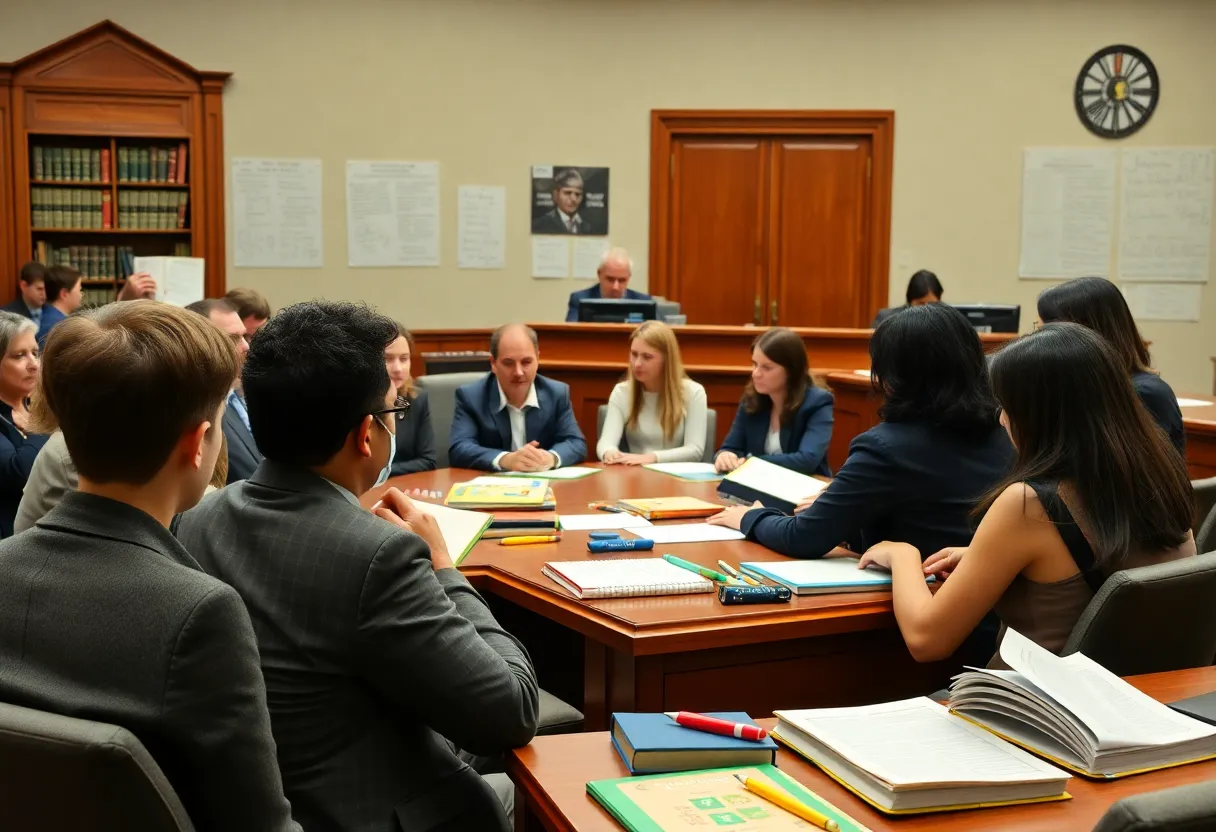News Summary
Arizona Attorney General Kris Mayes is part of a coalition of 23 states suing the Trump administration over a $6.8 billion funding freeze that impacts public education. Filed in a Rhode Island District Court, the lawsuit argues that the freeze violates federal law and harms educational programs crucial for K-12 students. Local school districts anticipate significant cuts in vital programs, with various districts facing potential layoffs and service reductions just as the new school year approaches. The outcome of this lawsuit could have wide-reaching effects on education funding across the nation.
Phoenix, Arizona – Arizona Attorney General Kris Mayes has taken a decisive action by joining a coalition of 23 states in a lawsuit against the Trump administration, targeting the recent decision to freeze over $6.8 billion in public education funding. This lawsuit, which has been filed in a Rhode Island District Court, condemns the funding freeze as unconstitutional and asserts significant negative impacts on public schools in Arizona and across the United States.
The U.S. Department of Education announced the funding freeze just ahead of the July 1 deadline when schools were poised to receive crucial K-12 educational funds. These froze funds are essential for several critical educational initiatives, including before- and after-school programs, services designed for English-language learners, and special education programs. Arizona schools are estimated to potentially lose over $132 million due to the freeze, with approximately $2.2 billion allocated specifically for teacher professional development included in that amount.
The repercussions of the funding freeze are being felt acutely in local districts. For instance, the Crane Elementary School District in Yuma anticipates laying off a preschool teacher, while the Colorado River Union High School District in Bullhead City is at risk of cutting a science and a social studies teacher. Similarly, the Isaac School District in Phoenix may face the elimination of its entire band program. These reductions could severely undermine educational opportunities for students across the state.
District leaders have expressed their concerns, emphasizing that withholding these funds could disrupt their operations and limit educational services just as the new school year approaches. If the funds remain frozen, many districts may find themselves unable to maintain critical programs, including school safety offices or summer school activities.
Legal Grounds of the Lawsuit
The lawsuit posits that the actions taken by the Trump administration violate federal law and the constitutional principle of separation of powers. It asserts that only Congress possesses the authority to determine appropriations and expenditures, not the Executive Branch. The states are seeking judicial intervention to compel the U.S. Department of Education to release the withheld funds for essential educational services.
State Responses and Diverging Views
While the majority of state leaders support the lawsuit, Arizona Superintendent of Public Instruction Tom Horne has expressed a contrasting view. He claims the impact of the frozen funds is minimal, affecting less than 1% of schools’ budgets. Horne contends that a federal review of educational funding is essential to ensure that financial aid is not aligned with “far-left ideologies.” This disagreement highlights a division among state officials regarding the implications of the funding freeze.
The state of Arizona’s lawsuit represents the 21st legal action undertaken by Mayes against the federal government since taking office in January 2025, demonstrating a continued commitment to advocacy for state educational interests. The urgency of this lawsuit is underscored by the potential closure of essential programs such as the Boys & Girls Clubs and the YMCA, which rely on this federal funding to operate. Combined, these programs affect academic and extracurricular opportunities for over 1.4 million children nationwide.
Conclusion
The outcome of this lawsuit could have significant ramifications for Arizona schools, and indeed schools across the nation, as funding decisions made at the federal level reach far into local communities. As the new school year draws near, both educators and politicians continue to advocate for the swift resolution of this funding crisis, with a clear view towards ensuring the educational needs of students are met.
Deeper Dive: News & Info About This Topic
HERE Resources
Concerns Emerge Over $440 Million in Arizona Education Vouchers
Arizona’s $440 Million in Unspent Education Voucher Funds
Arizona Schools Face Budget Shortfall Amid New Funding
Governor Hobbs Vetoes Antisemitism Teaching Ban in Arizona
Arizona Faces Job Losses and Lawsuit Amid Federal Funding Cuts
Arizona’s Proposition 123 Faces Uncertain Future
Arizona Legislature Passes Controversial Antisemitism Bill
SRP Partners with Aquatic Centers for Water Safety Program
Arizona’s Education Scene in Turmoil Over Confusing DEI Mandates
Arizona Attorney General Challenges Tariffs in Lawsuit
Additional Resources
- AZ Family
- Wikipedia: Education in the United States
- Arizona Mirror
- Google Search: Arizona education funding lawsuit
- KVOA
- Google Scholar: Education funding lawsuit
- AZ Central
- Encyclopedia Britannica: Education Department
Author: STAFF HERE PHOENIX WRITER
The PHOENIX STAFF WRITER represents the experienced team at HEREPhoenix.com, your go-to source for actionable local news and information in Phoenix, Maricopa County, and beyond. Specializing in "news you can use," we cover essential topics like product reviews for personal and business needs, local business directories, politics, real estate trends, neighborhood insights, and state news affecting the area—with deep expertise drawn from years of dedicated reporting and strong community input, including local press releases and business updates. We deliver top reporting on high-value events such as the Waste Management Phoenix Open, Cactus League Spring Training, and Arizona State Fair. Our coverage extends to key organizations like the Greater Phoenix Chamber of Commerce and Visit Phoenix, plus leading businesses in technology and healthcare that power the local economy such as Intel and Banner Health. As part of the broader HERE network, including HERETucson.com, we provide comprehensive, credible insights into Arizona's dynamic landscape.




